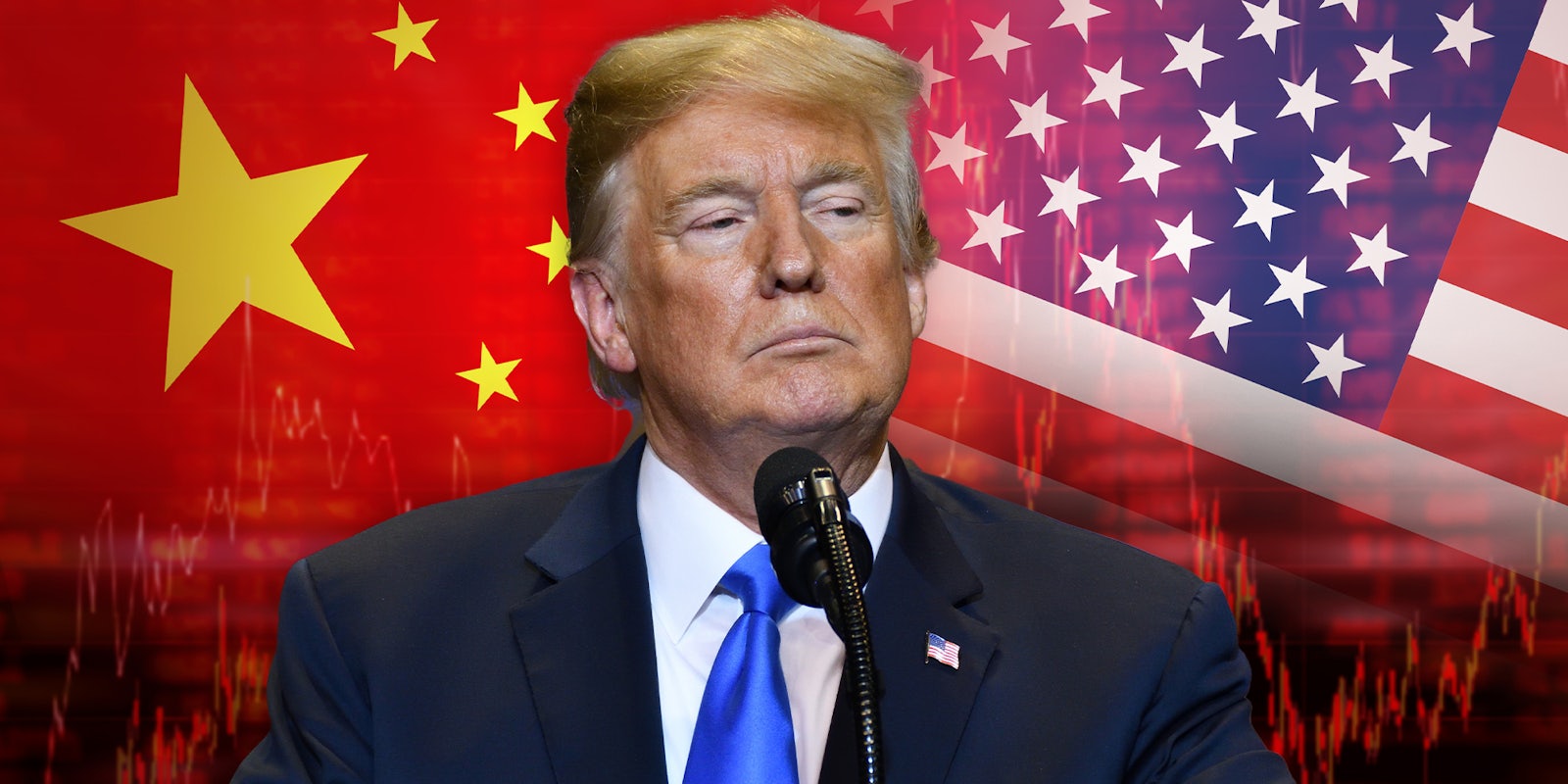Former President Donald Trump launched a Central Intelligence Agency (CIA) covert operation aimed at swaying Chinese citizens against its government, according to a new Reuters report.
The social media campaign began in 2019 and involved CIA operatives using fake internet personas to spread negative narrative about Chinese President Xi Jinping’s government, in addition to “leaking disparaging intelligence to overseas news outlets,” Reuters reported.
In public, Trump frequently speaks favorably of Jinping.
“I like President Xi a lot, he was a very good friend of mine during my term,” Trump said in February, adding that he “got along with him great.”
“Think of President Xi. Central casting, brilliant guy. You know, when I say he’s brilliant, everyone says, ‘Oh that’s terrible’,” said Trump.
And last summer, Trump commended him as a “brilliant” leader who “runs 1.4 billion people with an iron fist.”
But the propaganda initiative shows that the U.S. government used the “public opinion space and media platforms as weapons to spread false information and manipulate international public opinion,” a spokesperson for China’s Ministry of Foreign Affairs told Reuters.
However, China itself has been accused of launching similar initiatives.
A 64-page report released by a U.S. State Department agency last fall warns that Beijing “calculated that
it can more aggressively pursue its interests via information manipulation.”
The report noted that the Chinese government spends billions annually on foreign information manipulation efforts and uses false or biased information to promote positive views of the government and its policies and has similarly used fake personas to promote certain narratives.
The report comes amid an effort by U.S. lawmakers to ban TikTok—or force a sale—due to concerns that the Chinese government could access data from U.S. citizens or use the platform to manipulate information.
Avril Haines, the director of national intelligence, said earlier this week China could use the social media platform to influence U.S. elections. And others, such as Sen. Josh Hawley (R-Mo.) believe the platform serves as a “spy app” for the Chinese government.
At the time of the reported influence allegations ironically, Trump and his administration were looking into concerned TikTok was a national security risk.
In 2019, the Trump administration put TikTok under a national security review over concerns it could be spying on the U.S. population. The Committee on Foreign Investment in the United States was reported to be reviewing ByteDance’s acquistion of Musical.ly, which became TikTok.
Then in 2020, Trump issued an executive order declaring the platform a threat to the U.S. “national security, foreign policy, and economy,” though he backed off before the 2020 election in part because the move would alienate some young voters.
But since then, Trump has done a 180 on the issue and criticized the latest efforts to ban the app, saying, “there are a lot of young kids on TikTok who will go crazy without it.”
A survey conducted by the University of Southern California suggests that between 65% and 70% of Chinese people supported Jinping—significantly lower than previous polls have shown. And that’s with the researchers cautioning that concerns about digital surveillance may have swayed some respondents into giving positive responses.
The internet is chaotic—but we’ll break it down for you in one daily email. Sign up for the Daily Dot’s web_crawlr newsletter here to get the best (and worst) of the internet straight into your inbox.


